Graduate students from the University of South Florida, Florida A&M University, Florida State University, University of South Florida, Nova Southeastern University and Florida Atlantic University (FAU) Harbor Branch Oceanographic Institute have been selected as finalists for the 2023 John A. Knauss Marine Policy Fellowship.
The fellowship, sponsored by the National Sea Grant College Program, provides graduate students the opportunity to spend a year in marine policy-related positions in the legislative and executive branches of the federal government in Washington D.C. Fellows work on policy decisions that affect the nation’s coastal, marine and Great Lakes resources.
Knauss finalists are chosen through a competitive process that includes comprehensive review at both the state Sea Grant program and national levels. The five Florida finalists will join 83 others selected from a competitive pool of nominees representing 29 of the 34 Sea Grant programs in the coastal and Great Lakes states and territories.
The finalists from Florida are:
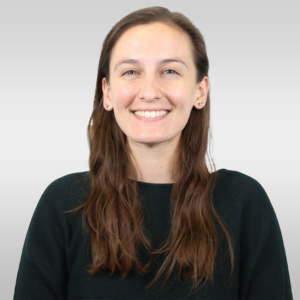 Shannon Burns
Shannon Burns
University of South Florida
Maryland-native Shannon Burns is a Ph.D. candidate of marine science with a concentration in chemical oceanography at the University of South Florida (USF). Working within Dr. Kristen Buck’s lab at USF’s College of Marine Science and co-advised by Dr. Robert Byrne, Burns conducts research that provides direct measurements of how trace metals cycle during phytoplankton growth in various environments. Her research will provide new insight for global biogeochemical models of primary production and climate change.
Following the Piney Point wastewater disaster in 2021, Burns led two research vessel expeditions as chief scientist in a collaboration with a multi-agency team of biological, geological, physical and chemical oceanographers aiding in emergency response field efforts.
“I am most excited to help translate marine science into implementable policy because it will provide me with a new perspective on how research is applied far beyond the lab,” says Burns.
Placement update: As a legislative fellow, Burns will be working within the Office of U.S. Senator Dan Sullivan (R-AK) under the leadership of its Fisheries & Oceans Advisor.
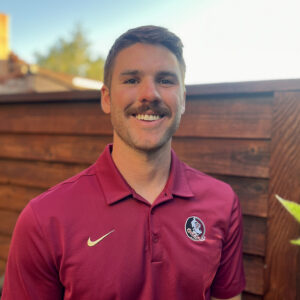 Blake Hamilton
Blake Hamilton
Florida State University
Blake Hamilton holds a master’s degree in biological science with a concentration on ecology and evolution from Florida State University. Within the Grubbs Lab at FSU, Hamilton conducted research on the community and trophic ecology of coastal elasmobranchs in the Apalachicola Bay system, while also heading an ongoing acoustic telemetry project investigating spatiotemporal movement patterns of the blacknose shark, sponsored by the Save Our Sea Foundation (SOSF) and the Guy Harvey Ocean Foundation. Hamilton also coordinated the annual NOAA GulfSPAN survey and smalltooth sawfish surveys. Since 2020, Hamilton has been involved with Skype a Scientist and Scientists in Every Florida School, presenting on marine science and conservation issues to elementary through high school-level students.
A fisheries scientist, outdoorsman, and certified scientific diver, Hamilton’s passions lie in fisheries conservation, management of natural resources to protect practical use, and the maintenance of cultural relationships with these resources. “As a Knauss fellow, I look forward to learning how to best communicate research findings to policy makers and stakeholders while having a hand in developing strategies for sustainably managing marine resources,” says Hamilton.
Placement update: As an executive fellow, Hamilton will be working for NOAA’s National Ocean Service (NOS) within its Office for Coastal Management.
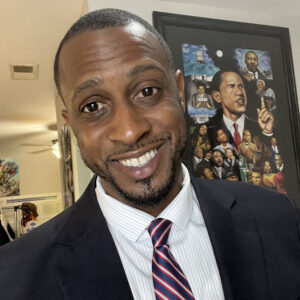 Willis “Will” Lyons
Willis “Will” Lyons
Florida A&M University
Will Lyons is a Ph.D. candidate of environmental science at Florida Agricultural & Mechanical (FAMU) University, where he is also a FAMU NOAA Center for Coastal and Marine Ecosystems (CCME) Graduate Scholar. Lyons’ dissertation research focuses on the perceived risk and marine health management policies that protect coastal populations from harmful red tide blooms. Lyons holds a master’s degree in environmental science from Jackson State University, where he was also a NOAA Environmental Cooperative Science Center (ECSC) Scholar. At JSU, Lyons’ graduate research developed a control strategy using natural chemicals to remediate waterborne agents. While at JSU, Lyons’ worked at the Gallery1STEAM Initiative, leading classes for preschoolers and highschoolers from across the Greater Jackson metro area. This experience inspired him around the tenets of good education, meaningful discourse between the science community and the public, and the collateral benefits of social care.
A lifelong student, Lyons is passionate about improving community resilience and quality of life through scientific understanding and humanitarian values.
Placement update: As an executive fellow, Lyons will be working for the National Oceanic and Atmospheric Administration (NOAA) within its Office of Education.
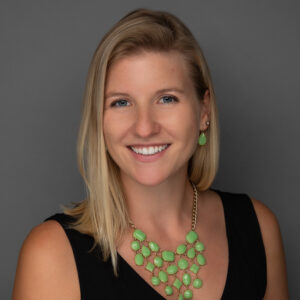 Gretchen Spencer
Gretchen Spencer
Nova Southeastern University
Gretchen Spencer is a master’s student of marine science at Nova Southeastern University whose thesis research investigates the biogeochemistry of nearshore mangrove systems and its role in the carbon cycle. A curious learner, dedicated teacher and confident leader, Spencer serves as both president of the Halmos College of Arts and Sciences (HCAS) Graduate Student Government Association and Education Program Coordinator at the Marine Environmental Education Center (MEEC) in Hollywood, Florida. At MEEC, Spencer leads education and outreach programs that engage school groups and the public on diverse marine and coastal science and conservation topics.
Spencer holds a bachelor’s degree in marine science with a concentration on biology and a minor in fisheries from the University of Maine. Spencer cites her undergraduate research focused on Arctic phytoplankton and an undergraduate oceanography internship in partnership with Alaska Sea Grant and the University of Alaska where she created geospatial maps of prospective aquaculture sites as foundational experiences that have made her an adaptable scientist and teacher. As a scientific ambassador to underserved communities, Spencer also aims to be a positive influence on the next generation of potential scientists and policymakers.
“Through both national and international experiences at the university level and beyond, I realized that policy plays a critical role in how science is translated into action and real-world change is achieved,” says Spencer, “As a Knauss fellow, I want to ensure government policy reflects scientific consensus.”
Placement update: As an executive fellow, Spencer will be working for Oceanic and Atmospheric Research (OAR), also known as NOAA Research, within its Office of the Chief of Staff.
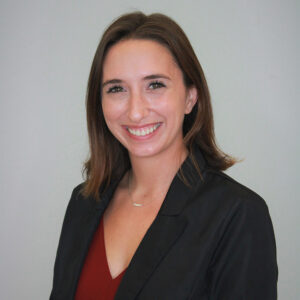 Alexis “Lexie” Sturm
Alexis “Lexie” Sturm
Florida Atlantic University (FAU) Harbor Branch Oceanographic Institute
Maryland-native Alexis Sturm recently received her Ph.D. in integrative biology and was a National Science Foundation (NSF) Graduate Research Fellow at Florida Atlantic University (FAU) Harbor Branch Oceanographic Institute (HBOI). Under the mentorship of Dr. Joshua Voss, Sturm works within the coral reef health and molecular ecology lab at FAU-HBOI where she also received a master’s degree in biological science. Her research interests include coral reef ecology, population genetics and genomics, mesophotic reefs, and the application of science to effective coral reef management and policy, especially marine protected area designation. During her graduate program, she combined technical diving and advanced molecular approaches to identify shallow and mesophotic coral populations resilient to bleaching and disease outbreaks and understand how they may be connected to other reef populations across the tropical western Atlantic.
Sturm also serves as President of the Harbor Branch Graduate Student Association and is a founding member of the Harbor Branch Diversity, Equity and Inclusion Committee.
Sturm previously interned with NOAA’s Office of National Marine Sanctuaries and later in the Office of Protected Resources, where she worked in education and outreach and translated scientific literature into policy action, respectively. In 2016, she received a NOAA Hollings Scholarship placement at the University of Guam’s Marine Lab to assess the effects of tourism on a coral reef system in the Tumon Bay Marine Preserve. Research-related expeditions, workshops, and professional meetings have taken her to Cuba and Mexico, where she has developed a network of collaborators and an interest in international collaborative research and management.
“Growing up in the D.C. area, I was always interested in how policy affects communities and, conversely, how communities and science can drive change at even the highest levels of government”, says Sturm. “My experiences at NOAA solidified my passion for policy and public service.”
Placement update: As an executive fellow, Sturm will be working for NOAA’s National Ocean Service (NOS) within its Office for Coastal Management, specifically at its Coral Reef Conservation Program.
This November, the finalists traveled to Washington, D.C., to participate in a process that matches them with legislative or executive branch offices. Previous fellows have worked in U.S. Senate and House offices, departments in the executive branch, NOAA programs and other agencies. The year-long paid fellowship begins in February 2023.
This year’s class of 86 finalists comprises students and recent graduates from 62 distinct universities, including 16 finalists from nine minority-serving institutions. Since 1979, over 1,550 fellows have completed the one-year Knauss fellowship program, applying their experience to lasting careers in science, policy and public administration.
Read the full announcement in a press release from the National Sea Grant College Program.
Interested in becoming a Knauss marine policy fellow in 2024? Florida Sea Grant is now accepting applications for the 2024 John A. Knauss Marine Policy Fellowship. All prospective fellows from Florida must submit their applications through Florida Sea Grant by Feb. 16, 2023. Learn more about how to apply.